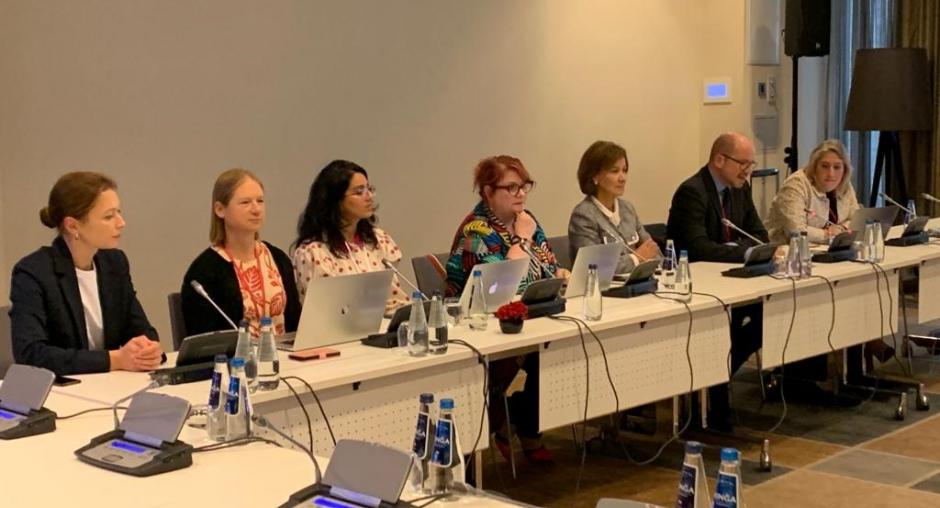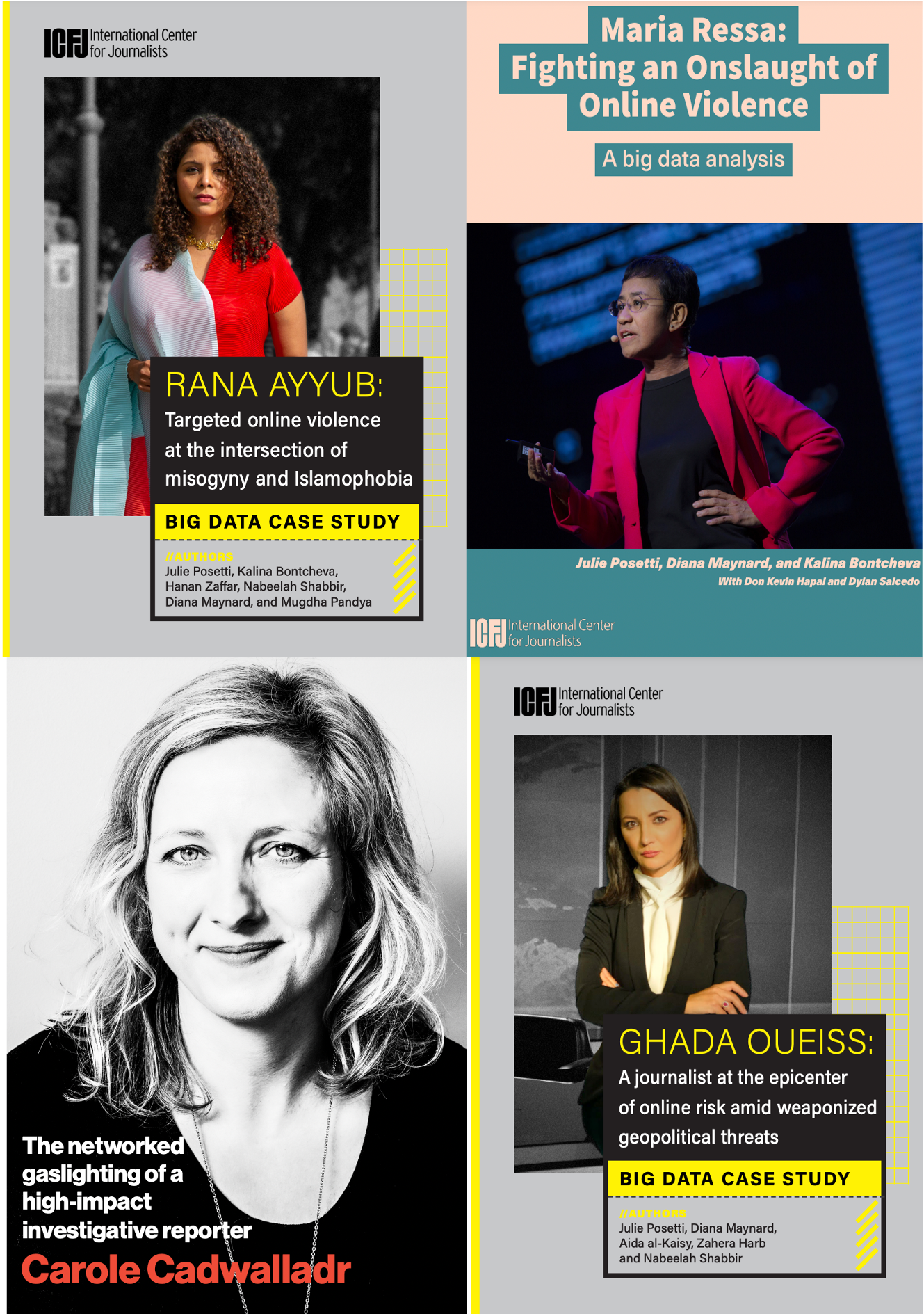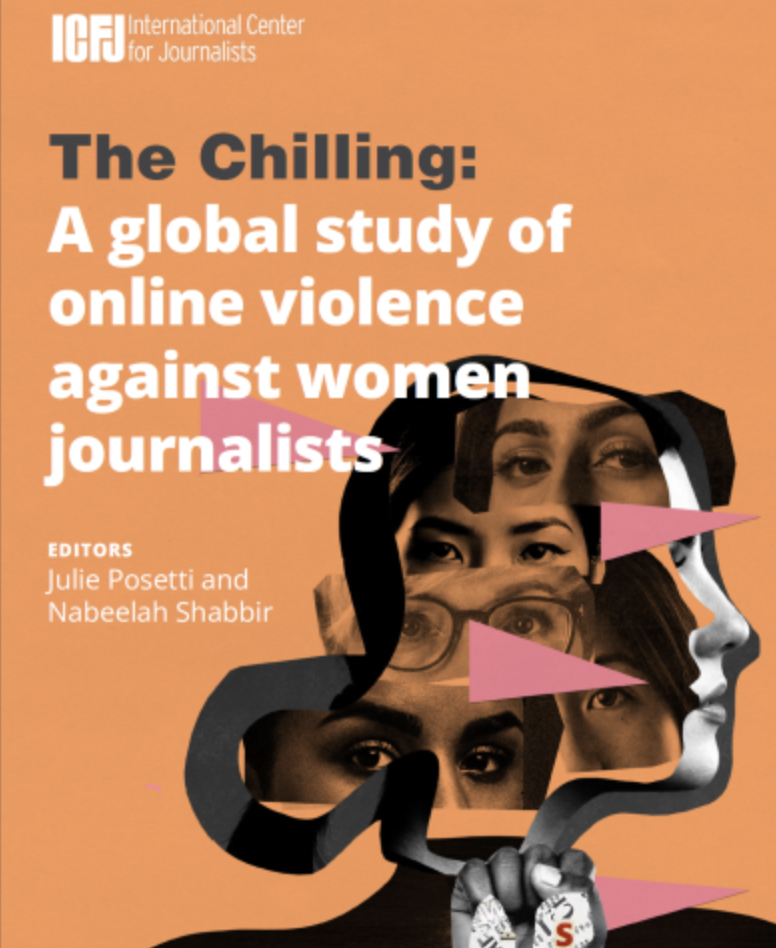Monitoring Online Abuse
CFOM is working on a project funded by the UK’s Foreign Commonwealth and Development Office that is designed to develop tools to monitor the online safety of journalists. This involves the creation of an early warning system dashboard which monitors online abuse of women journalists and can predict serious danger of escalation, e.g. to offline abuse. The project is led by CFOM member and International Center for Journalists (ICFJ) Deputy Vice President for Global Research, Dr Julie Posetti. The technical work at Sheffield is led by CFOM’s Dr Diana Maynard and Professor Kalina Bontcheva.
Research Team
Key Publications and Reports
Posetti, J., Maynard, D. and Shabbir, N. (2023). Guidelines for Monitoring Online Violence Against Female Journalists. OSCE.
Posetti, J., Bontcheva, K., Zaffar, H., Shabbir, N., Maynard, D. and Pandya, M. (2023). Rana Ayyub: Targeted online violence at the intersection of misogyny and Islamophobia.
Posetti, J., Maynard, D. al-Kaisy, A., Harb, Z. and Shabbir, N. (2023). Ghada Oueiss: A journalist at the epicenter of online risk amid weaponized geopolitical threats.
Posetti, J and Shabbir, N. (eds) (2022). The Chilling: A global study of online violence against women journalists.
Posetti, J., Maynard, D., Bontcheva, K. and Shabbir, N. (2022). The networked gaslighting of a high-impact investigative reporter: Carole Cadwalladr.
Posetti, J., Maynard, D. and Bontcheva, K. (2021). Maria Ressa: Fighting an Onslaught of Online Violence: A big data analysis.
Key Project Activites and Events
Online Violence Early Warning System
A project funded by the UK’s Foreign, Commonwealth and Development Office is designed to identify key indicators and metrics that will signal the escalation of online violence against women journalists. The Online Violence Early Warning System is a patnership between computer scientists here at the University of Sheffield and CFOM and the International Center for Journalists’ research division. The research team are focused on examining the trajectory between online and offline attacks alongside developing digital tools to detect and alert responders to high-risk cases.
OSCE Guidelines for Monitoring Online Violence Against Female Journalists
On 4 October the OSCE published a new report by Professor Julie Posetti, Dr Diana Maynard and Nabeela Shabbir entitled Guidelines for monitoring online violence against female journalists. The report was launched at the OSCE Warsaw Human Dimension conference where the authors spoke in more detail about their findings. The report details a new framework for monitoring and recording acts of gendered online violence mapped to international human rights standards, including SDG 16.10.1 and the UN’s ICCS. The report includes 15 research-derived indicators for online violence escalation with tailored monitoring guidance for each trigger, along with templates for recording the details in a systematic, actionable way.

Photo Credit: OSCE/Paloma Madrigal
Big Data Case Studies

The publication of big data case studies focuses on women journalists who have faced online abuse for the work that they undertake in their profession. In order to better understand and prevent such attacks, CFOM members Dr Diana Maynard and Professor Kalina Bontcheva have been working with the ICFJ to analyse social media posts for the big data case studies, led by Professor Julie Posetti. So far, four big data case studies have been produced. The research approach involves the use of blending computational linguistics (Natural Language Processing), machine learning, and network analysis. Interviews with the targeted women were also undertaken. The four big data case studies have thus far focused on Maria Ressa in the Philippines, Carole Cadwalladr in the UK, Rana Ayyub in India and Ghada Oueiss in the Arab States. The reports have been completed to provide a solid evidence base to document the abuse and experiences of the women journalists, providing data that examines the characteristics and methods of the attacks that are launched against the women. Further big data case studies will be published later in the year.
The Chilling: A global study of online violence against women journalists
The Chilling: A global study of online violence against women journalists is the product of a three-year study covering 15 countries focusing on the online violence against women journalists. The study was commissioned by UNESCO and led by Professor Julie Posetti. Dr Diana Maynard and Professor Kalina Bontcheva’s research also featured in the report, with two big data case studies produced that examined 2.5 million social media posts directed towards Nobel Laureate Maria Ressa and investigative journalist Carole Cadwalladr. The report also contained detailed country case studies, with CFOM’s Dr Sara Torsnser contributing to the case study focused on Sweden.
It was found that, out of the women journalists surveyed, almost three quarters had experienced online violence in their work. 25 percent stated that they had received threats of physical violence and 18 percent said that they had received threats of sexual violence. 48 percent said that they had been harassed with unwanted private social media messages and several interviewees had also experienced offline stalking which had begun via online messaging, emphasising the link between how online harassment can often become offline harassment.

The report makes a series of recommendations for both governments and policymakers. These recommendations include recognising the impact that online violence can have on women journalists, such as psychological injury. It also advocates for making social media companies more accountable for combatting online abuse such as through providing clear legal definitions of what social networks and messaging services are, alongside how they are regulated under national laws. Calls were also made for social media companies to be required to notify users who have reported on online violence about actions that have been taken. The importance of national bodies and regulators to oversee compliance with national and international laws designed to defend online safety was also highlighted.



